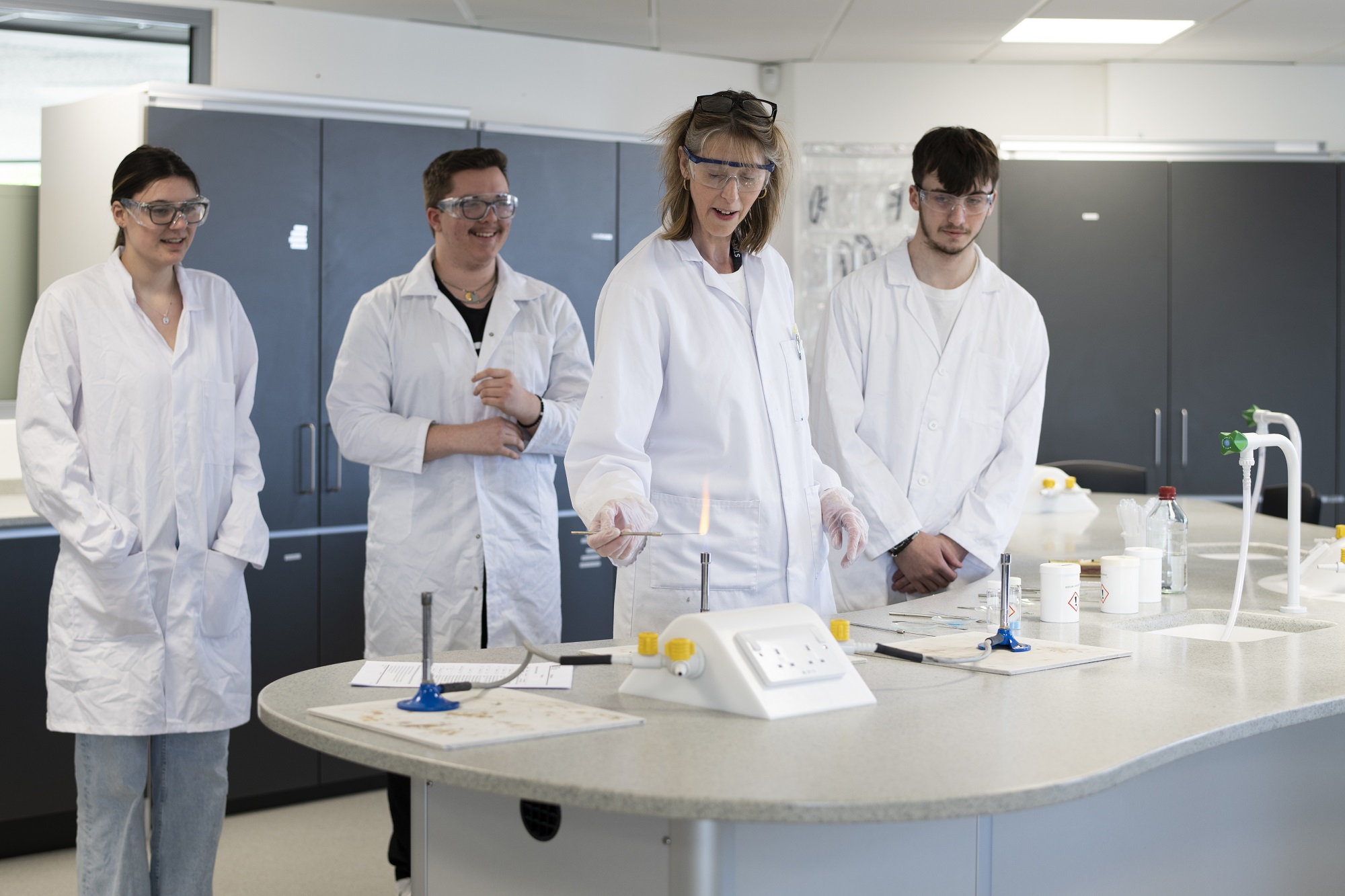
Our Prospectus

Courses
Right here, right now, the field of science couldn’t be of more global importance. Our world is rapidly changing, and we face a variety of challenges from securing food and water supplies, clean air and pollution, medical and scientific advances as well as social, ethical and economic impacts on our world.
Is that enough to whet your appetite, curiosity, and analytical and challenging mind? Without people like you, our country’s productivity, economy, advancement and innovation are in the balance.
Our courses provide you with the knowledge, skills and behaviours to progress onto your chosen profession within science. And what a diverse sector it is – with opportunities not only directly related to the field of science, but also in all other sectors, with the skills and knowledge gained on our courses being transferable to almost any industry.
Many of our students continue to further study here at West Suffolk College before progressing to degree level, Apprenticeships or into employment. And our team will support you every step of the way by using their diverse range of scientific skills, academic and industry experience.
There's a definite need for STEM skills and graduates and our courses will give you the skills and knowledge to progress into a range of different scientific disciplines. From biomedicine to business; neuroscience to nutrition and toxicology to teaching, the career of your dreams will be at your fingertips.
Apply now to study in our new Science laboratories!

Follow Us
Stay up-to-date on the latest news & events